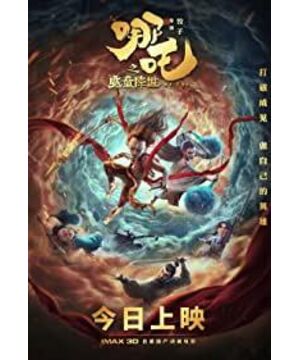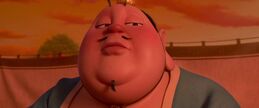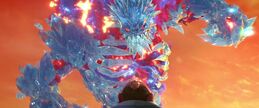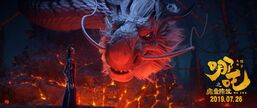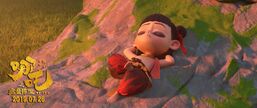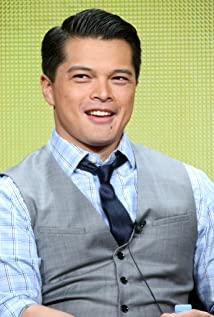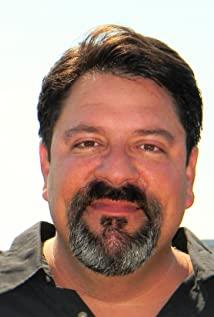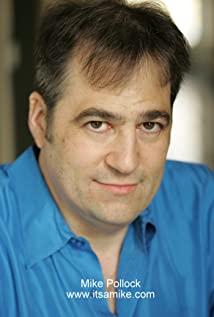I understand Nezha
Nezha is an "imported god", which was continuously reshaped after integrating Persia, India and Buddhism, and finally became famous as a Taoist god. The story of Nezha was basically finalized in the "Three Religions Sou Shen Daquan" in the Yuan Dynasty. Later, it was greatly enriched in "Journey to the West" and "Fengshen Romance", and finally the story of "Fengshen Romance" was basically used.
The book "Fengshen Romance" was written very strangely. It greatly praised and won the final victory of the "interpretation and teaching" everyone shameless. For example, the growth history of Nezha in the book: he was reincarnated as a magic weapon of "interpreting teaching", and he shot the boy of the Empress Shiji thousands of miles away with an arrow, but Shiji was taught by Nezha and his master Taiyi. The real person was beaten to death; he disturbed the Dragon Palace while taking a bath, and the third prince of the East China Sea came to see him and tortured him to death, and beat his father; and then "cut the flesh to return his parents" to his own death, Li Jing prevented him from reincarnating; The real person, who reshaped Lian, came to chase and kill Li Jing, and was finally enlightened by Taoist Ran Deng. He joined the revolutionary army to overthrow the Shang Dynasty and was named a god.
I was very puzzled by Ne Zha's story and cultural background. From the point of view of conspiracy theory, "Nezha" can be regarded as "Chan Jiao" cheating in the Conferred God War from birth; Shi Ji, who ambushed his opponent "Intercept Jiao" before the "match", was shocked again. The host "Heavenly Court" represented by the Dragon King finally joined the army with the help of the foreign "Buddhist" forces. From the character's point of view, this is a complete image of a bully who ignores all the moral principles we know, and is a more thorough and comprehensive rebel than "Monkey King"; his "evil" has no There is no reason, there is no reason and logic, but at the same time, it has "Buddha nature" because of this "purity". I also mentioned it when I wrote "Girl Nezha" a few years ago.
Such an image of a complete rebel and "pure evil" was finally successfully recruited. It seems to have become a typical case of "The Prodigal Son", which was constantly beautified by various literary works until he was portrayed as a hero. The story itself is a "Heavenly Theme" story, or "The Rule's Theme", fully internalizing the worship of absolute power in the story line. Of course, this is only one side of the story, and its deeper meaning requires complex decoding work.
The text of the movie is more complicated, but starting from the most burning line "My life is up to me", which is also a classic line that often appears in this type of work, a simple analysis can be made.
The slogan "My destiny is my destiny" first established that "destiny" can be rewritten (at least this possibility) - the authority of "destiny" was deconstructed; The fundamental opposite relationship between "I" and "Heaven" in the time of "right"—the authority of "Heaven" is also deconstructed. Immediately after these two elements are deconstructed, it is necessary to redefine several basic issues:
What is Nezha's "life"? What is the "heaven" that Nezha wants to resist? What is Nezha's so-called "I"?
A false proposition: rebellion against fate
If the word "destiny" is not divided into time, we often cannot distinguish it accurately. Many people complain about the injustice of "destiny" and rise up to resist, but is this "resistance" itself the proper meaning of "destiny"? ?
The destiny arranged by Yuanshi Tianzun for Nezha is "the reincarnation of Lingzhu", and he will become a righteous god after subduing demons and eliminating demons; Change. As the "Reincarnation of the Magic Pill", Nezha once indulged in doing evil, and was later influenced by his father's love to restrain the "Magic Pill" nature and save everyone. Can this be understood as a kind of "resistance"? In the end, Nezha accepted the "Heavenly Tribulation Curse" and was about to be hacked to death. Does this mean that he accepted the fate of "Magic Pill - Himself"? It was not until Ao Bing stood with him and the "Hunyuanzhu" merged that "they" had their first resistance, but it was a tragic resistance, and they both died. Interestingly, the real Taiyi who destroyed this original destiny also joined the ranks of resistance at this time and saved the souls of the two.
On the fate of "Magic Pill-self", Nezha personally resisted very little - but the director set up the role of "Ao Bing" here, and they were juxtaposed in a mirror image. If we just pull out the story lines of the two people, we will find that the two have different rhythms in the story. Whether it is "Lingzhu" or "Magic Pill", they passively accept the destiny they have set, and they cannot find it. When you reach your position in this world, you can only face and resist this fate together in the end. However, what is the point of resistance here?
Obviously, the combination of the two "Hunyuanzhu" is a heterogeneous existence outside the "law of the heavens" represented by Yuanshi Tianzun. They are the dissenters of this law, and what they have to resist should be the law itself, and also It is the ideology itself represented by Yuanshi Tianzun.
The settings of "Lingzhu" and "Magic Pill" represent two extreme biological instincts. As soon as Nezha was born, he displayed extremely destructive innate magic power, but this "nature" was quickly trapped by the universe circle of Taiyi Zhenren. Of course, it is not only the Qiankun circle that trapped him, but also the various etiquette and law teachings to him by parents, commoners, and Taiyi real people.
Under the discipline of this "ideology", the mother pointed out "Nezha's thoughts" - wanting to gain everyone's approval (however, can this be understood as ideology's mandatory requirements for Nezha), Nezha here Under this kind of call, I started to actively change and want to be a good person and good deeds. At this time, what Nezha wanted to resist was the prejudice of the people around him. But behind this prejudice is a basic moral rule displayed by the "law of the heavens": "Magic Pill" and "Lingzhu" represent the "evil" and "good" which are clearly separated and indistinguishable, and "evil" must be Destroyed, the catastrophe will come.
Not to mention whether there is a problem with this law itself, and whether it should be changed; only the identity relationship between Nezha and "Hunyuanzhu" is obviously a mistake under the "law of heaven", and the "law" represented by Yuanshi Tianzun is not correct. This error is ignored and is not responsible. When this "law" cannot correct itself and is not responsible for its own mistakes, it is obviously time to be resisted.
At the same time, this "rule" itself reveals even greater injustice: Yuanshi Tianzun did not explain the selection criteria of the "Twelve Golden Immortals". It is obvious from the movie that Shen Gongbao's business ability is much stronger than that of Taiyi real person. Shen Gongbao guessed himself Being rejected because of a bad background - this is a very traditional and ignorant patriarchal relationship - this is also the logic of the "Fengshen Romance" in the "Fengshen Romance".
But looking at the whole movie, Nezha never questioned the right or wrong of this "law", never confronted Yuanshi Tianzun, or even confronted Taiyi Zhenren and Shen Gongbao, the initiators of this "mistake". And when he ran away as the "reincarnation of the magic pill" and was trapped in the "circle of heaven and earth" again, the ideological state machine threw an olive branch to him-he saw that his father found a way to Take advantage of the loophole: use your own life in exchange for Nezha's life. First of all, this is a serious revolutionary issue that is displaced by the spiritual level of love and affection; secondly, this is obviously an ideological reassurance and compensation. Nezha immediately accepted, and immediately went back to self-control (self-censorship) to start a conscious rampage state to save the people of Chentangguan. In my opinion, after his "runaway" showed his "resistance" action, the ideology represented by the threatened "heavenly world" immediately filled his gap and erased his "resistance consciousness". And Nezha accepted this compensation, and by the way, accepted the "authority" of this rule. The respect and worship of "absolute power" is completely internalized in Nezha and in the value orientation of the story. His "resistance" seemed to be just a grievance protest from a child who didn't get meat, and he would die for it as soon as he got meat.
It is also in this sense that I think the character arc of "Ao Bing" is fuller and more worthy of the slogan "My life is in my hands". The character "Ao Bing" started by resisting the imposed "original sin", trying to gain mainstream recognition, and finally awakened and took the initiative to lead Nezha to resist the "rules" itself. The action clues and psychological clues are clear, concise and effective, which is touching. This character is set up so successfully that even halfway through the movie does not diminish the charm. In contrast, "Nezha" looks like an unfinished image. Speaking of Ao Bing, his father is also very interesting. His father knew that he was guarding the heavenly prison as a prison, but he still accepted the rules of the heavens and watched the prison honestly, trying to find a way to send his son to be a real civil servant. Their dragons must have a spirit of resistance, they should have left their tails long ago, why are they biting the chain there. Moreover, after Ao Bing's death, his father in the easter egg did not directly point his anger at the "Heavenly Tribulation" and the rules of the heavens that killed his son, but only dared to point at the "accomplice" Li Jing.
If you look at unity from the "climax", you can clearly see how absurd and torn Nezha is to be struck by lightning without asking why he fought against Ao Bing and taught him not to be cowardly. Nezha's runaway when he confronted Ao Bing under the ice, the scene was very similar to the runaway of Sun Wukong at the end of "Journey to the West", but "Nezha" lost such a complete tragedy.
So when Nezha shouted "My life is up to me, I can't help God", he actually never fought against "Heaven", it was not a declaration, just a complaint. We are in an age and a world where we are only content with shouting slogans, an age and a world of immature "teenagers". In the movie theater, when Nezha transformed into Shen Gongbao and teased Ao Bing everywhere, the politeness of "Ao Bing" was pulled by the director to replace the "rules of heaven" and became the object of teasing, and the audience all laughed. . But "Ao Bing" is just a more pitiful rebel and victim than Nezha, but one is Song Jiang and the other is Fang La. When we laugh, what are we laughing at? Complimenting a betrayal of a friend? Or did you find some comfort in beating the scapegoat? When we are treated as "enemies", are we eager to become a member of "banal evil" as soon as we have the chance and take credit for it? The specter of Hitler has not gone away, nor has the specter of a decade of catastrophe.
The high degree of internalization of the worship of "absolute power" is what Dai Jinhua mentioned in her lecture on "Rediscovered and Lost: Historical and Cultural Memory" , her observation of young people in recent years. She believes that from the "Yongzheng Dynasty", pop culture has begun to exaggerate this tendency, and her observations of her students in recent years have confirmed her idea - she found that young people today will accept "what is possible" , what is impossible", has an inherent respect for power (respect for an internal order, not a specific person in power). To a certain extent, the young people she saw were more "mature" than her and no longer "idealistic", so Dai Ye "announced" that she accepted the generation gap and no longer stood with young people.
This episode of Dai's speech is the direct source of my little analysis. On the other hand, I accept many "unspoken rules" while shouting injustice angrily every time, and I don't think I have the ability to do it. Change these rules. Perhaps we can argue that we are under too much pressure from all sides, that we are the first generation of fresh humans under the influence of our "capitalism". But it is undeniable that while chasing "The Legend of Zhen Huan" while fighting in office politics, shouting "forever young, forever full of tears" is exactly the landscape of our times.
But despite this, it is still not a failure; because I think the meaning of this film Nezha is not "resistance", but "self-recognition" to be mentioned below.
Lost "self"
When Nezha shouted "My fate is up to me, I can't help it", the so-called "I" here is obviously not the "I of destiny". So what is "I"?
"Self" based on "Other"
If we disassemble Nezha's growth history in the movie, we will find that Nezha's first identity is "the reincarnation of the magic pill", if we disassemble the composition of Nezha's "I" according to Freud's theory, then " "Magic Pill" is obviously Ne Zha's "self". However, as we have analyzed above, the difference between "Magic Pill" and "Lingzhu" is first of all a manifestation of the power relationship under the "Law of the Heavens", and it is an ideological construction of the individual "Nezha"— —This point is very clear in the prototype novel, whether it is the reincarnation of "Daluo Xian" written in "The Complete Collection of Three Religions" or the reincarnation of "Ling Zhuzi", the treasure of teaching and sectarianism in "Fengshen Romance", "Nezha" "From birth an ideology incarnate.
But how did Nezha know himself? He didn't know the theory of "the reincarnation of the magic pill" at first, and his knowledge of himself was based on the knowledge of the people around him: the people of Chentangguan said he was a monster, his mother regarded him as a precious son, and he himself was in two Then the father Li Jing and the master Taiyi Zhenren hoped that he would be a "reincarnation of Lingzhu" and could subdue demons and eliminate demons for the benefit of the common people. Reincarnation", he had no doubts at all. To be precise, at every stage, he never doubted himself in other people's words, and he reflected various emotions very cooperatively. That is to say, Nezha has never left the "mirror stage" in the Lacanian sense - "confirming" himself according to the other.
And this is exactly what Foucault said: there is no independent subject, the subject is shaped by discourse and power relations. In the construction of these "others", Nezha himself struggled back and forth, but he never found his true "self," or his own position in this discourse and power relationship.
ideal "self"
After learning that he was the "reincarnation of the magic pill" and went berserk, Nezha was moved by his father's love (and was recruited as written above), quickly changed, and took the initiative to start the "conscious berserker" state, saving the people and parents of Chentangguan master. He suppressed the biological instincts of his "magic pill" and quickly transformed from the level of the "id" to a diametrically opposed, morally noble "superego" hero (heroes are all superego), skipping the his "self".
In the whole film, we found that Nezha never said what kind of person he wanted to be (his desire to be recognized by the people is what he said), nor did he say his ideals, his preferences . We say that he is always looking for himself, yet his "self" is lost. Marx said that "man is the sum of all social relations", but in this world order, he can't find his place, and "he" in the sense of subjectivity has become an empty signifier.
Of course, most of us can't be who we want to be - the ideal self is often an ideological construction. In this "personality liberation", where the value of the individual is infinitely magnified and respected, we The desire (the id) reveals more and more calm and "reasonable", and the moral requirements of others are more and more extreme. We call everyone to be a "superego" without caring about some of their own inferiority. Therefore, under the influence of various ideological trends, the requirements of capitalist production relations, the inducement of consumption and various pressures, ordinary but vivid individuals voluntarily annihilate themselves and become a number, a symbol, the proletariat as a whole and us The "self" is completely lost. At this point, the loss of "Nezha" is exactly the loss of our era, and the so-called "resistance" of Nezha is like our weak complaint about the injustice that cannot be changed.
The simple definition of "self" on Baidu Encyclopedia is: an individual's cognition of his own living state, and the result of an individual's self-evaluation of his social role. Maybe Nezha just accepted his original identity as "the reincarnation of the magic pill", and after accepting that there is no place for himself here, he will take the initiative to accept the robbery without any resistance.
In the end, Ao Bing teamed up with Nezha to awaken the "Hunyuanzhu" together, resisting the calamity together, until they died (the soul was ready to be reborn), they finally got their place in this world order - the people have turned to this place. Kneel down to express recognition, respect, and gratitude to those in need.
The dissidents of this world have finally been eliminated, and they have become the "heroes" that people hope to return to order. According to the original novel, Nezha, who reshaped the lotus body, was about to join the revolutionary army that overthrew the Shang Dynasty, and worked hard to get on the list of gods with his new acquaintances. After being conferred God, his brief appearance was like a "living example of a personal statement" and was sent to encircle and suppress the next generation of "rebel" Sun Wukong, and then occasionally appeared to help him fight a few monsters on the road of Sun Wukong's recruitment. He still looks like a teenager, but he is still hundreds of years old. He has grown up long ago, and there is no more his story in the world.
Education issues
This is a show.
I really dislike the education of Li Jing and his wife Nezha, and many of the current educational problems reflected in it.
Mrs. Yin had nothing to say about Nezha's education. Basically, she sacrificed her life to accompany her son out of "dodging" and "deception and deceit".
Li Jing spent a year in the sky, and this year was a "stocking" for Nezha, fantasizing that he would be able to live up to his own expectations - this is actually the plight of left-behind children: parents want to create a better environment for their children and have to cooperate with their children The two places are separated, although many times they can only try to keep their family on the line of food and clothing; this is also the plight of parents who work hard for "school district housing" and work hard for loans in the city. Their original intention is also for their children, but the same No time for children. In fact, they do not know and have not educated their children, but after thinking that they have "paid so much", they often have higher expectations and requirements for their children.
In the movie, Nezha encountered many problems growing up. Li Jing and his wife had at least three good opportunities to guide education, but they all set negative examples.
First, in "Map of Mountains and Rivers, Sheji", after Mrs. Yin guided Nezha to "want to be recognized by the people", Nezha was aggrieved and asked Mrs. Yin why she wanted to kill demons and eliminate demons for them - although it was already too late, Mrs. Yin still had the opportunity to explain two basic common sense and life attitudes to him: when facing the maliciousness of the world, even if you can't think of a way for the time being, you should never fight back with a more evil attitude; doing a righteous thing is not for anyone else , just because of justice itself - although sometimes it is what you think is justice - this is also to say that life must have its own beliefs and values in life, and strive for it (find one's own value - very suitable for Nezha).
However, Mrs. Yin, who has always been eloquent and eloquent, was asked here, she never thought of guiding Nezha to become a sound person, but just wanted him to be happy in his lifetime; and Li Jing chose the same evil and worse at this time. Common practice: act according to one's own blueprint and deceive his son as a "spirit pearl", which has also been proven to be self-deceiving and utopian. This made Ne Zha live in a state of incomprehension and deception since he was a child, and no one really paid attention to his inner needs, let alone help.
Second, in "Map of Mountains, Rivers, Society and Ji", Li Jing and Taiyi real people trained Nezha to subdue demons, and Nezha violently subdued demons, completely disregarding the life and death of ordinary people, Li Jing reprimanded and was trapped in the picture by Nezha. Here, Nezha is obviously still in a playful mentality, and he has to be eager for success. This is a good opportunity to cultivate the "serious attitude" of Nezha, who has been messing around since he was a child. Ability" - this way, when he consciously goes berserk later, he doesn't have to rely on the power of the Universe Circle, and it is undoubtedly more touching to rely on his own power to control the devil. However, Comrade Li Jing, like many fathers, arranged training "brutally" without explanation or communication, resulting in a confrontation between father and son; at the same time, it also made Nezha more consolidate his wrong values because of his grievances.
Third, after Nezha violently subdued the demon, the people thought it was the demon himself and attacked him one after another. Li Jing and his wife came, and Mrs. Yin hugged Nezha and cried, but Li Jing glanced at the lady who got up from the water and sighed alone, without any explanation to Nezha and the villagers. We must have all experienced this kind of behavior of "slapping one's own child" first, and this kind of grievance and injury that is not trusted by close relatives will not be easily erased; and this slap, in addition to the collapse of "father's authority", also shattered trust in the world. Afterwards, Li Jing discovered the truth. However, such a belated apology is often a strong moral pressure for children to forgive. Moreover, Li Jing's way of apologizing is also sick. Regardless of the actual situation of the people and Nezha, he has to bring everyone together. It is more like a "sense of dedication" to satisfy himself.
Moreover, Li Jing later identified without hesitation that Ao Bing, who had just saved himself, was a demon clan. Except for the fact that he wanted to "betray friends" and "betray benefactors" (this is very dangerous, I regard it as extremely shameless It can also be seen that Li Jing never had a fundamental understanding of the identity of his son "Magic Pill-Nezha", he never agreed with the rationality of the existence of "demon", and probably never accepted it. Nezha.
So, Li Jing looks like a very stable big brother, but when he treats Nezha, he reveals that he is a rough man who can't communicate and is macho. This is a typical example of moving myself under the banner of "love" and misleading children. If I want to say that half of the tragedy of Nezha in this movie is to blame for Big Brother Li and Big Sister Yin, it would be right to reshape Lian and cut him behind him.
View more about Ne Zha reviews


